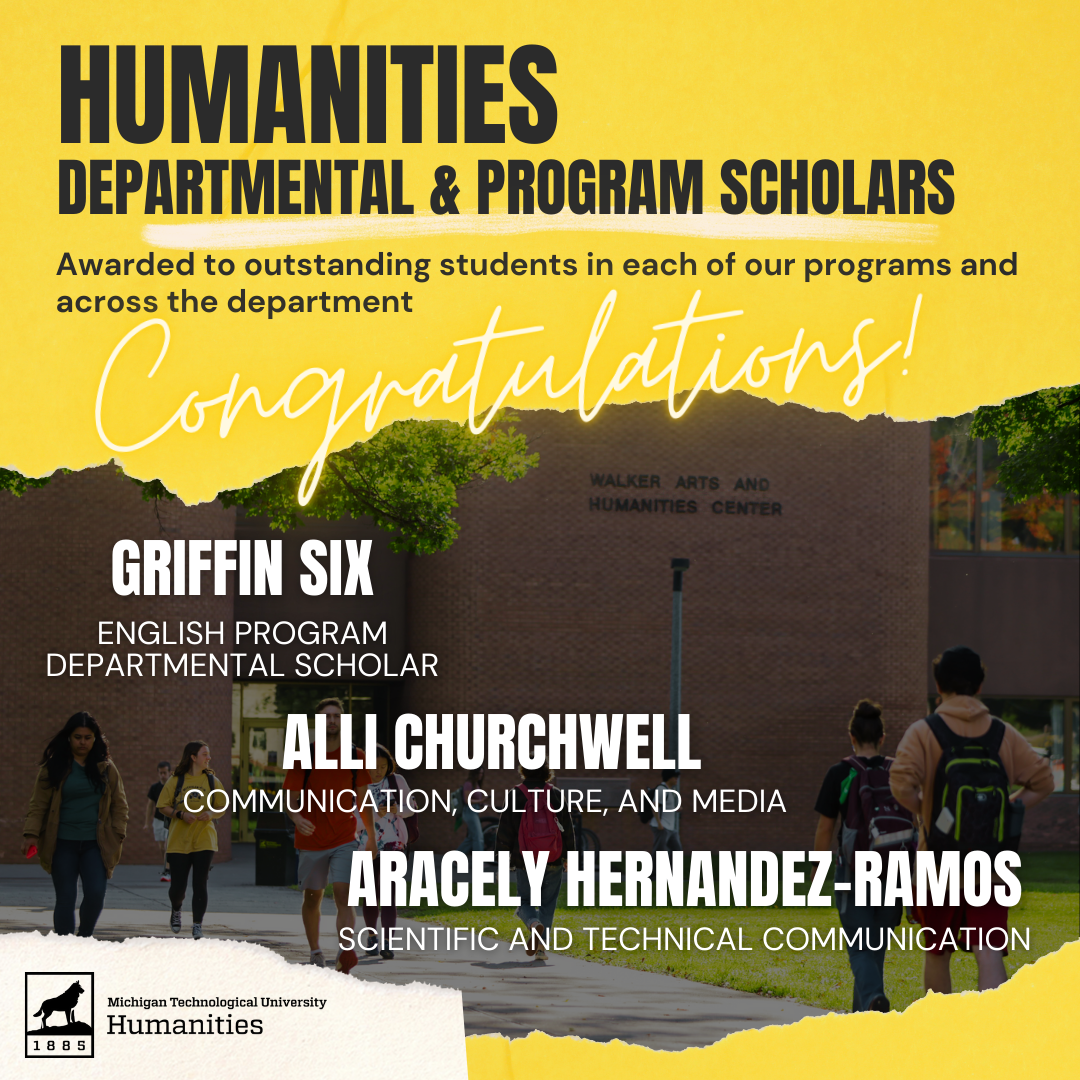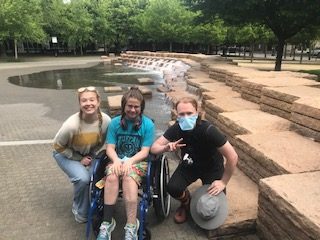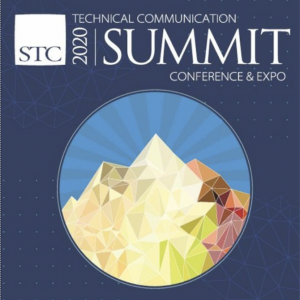A hearty congratulations to our humanities departmental and program scholars! These awards recognize outstanding performance of one undergraduate student in each of our three programs, as well as the department as a whole.
Congratulations to Griffin Six, our English program scholar, Alli Churchwell, our communication, culture, and media program scholar, and Aracely Hernandez-Ramos, our scientific and technical communication program scholar! Each program scholar receives $100 from the department in recognition of their achievements.
Griffin Six has also been named our humanities departmental scholar! Griffin will receive an additional $200 from the department, as well as eligibility for the Provost’s Award for Scholarship, which awards an additional $800 to recipients.
Congratulations and excellent work to all of our amazing humanities scholars!


